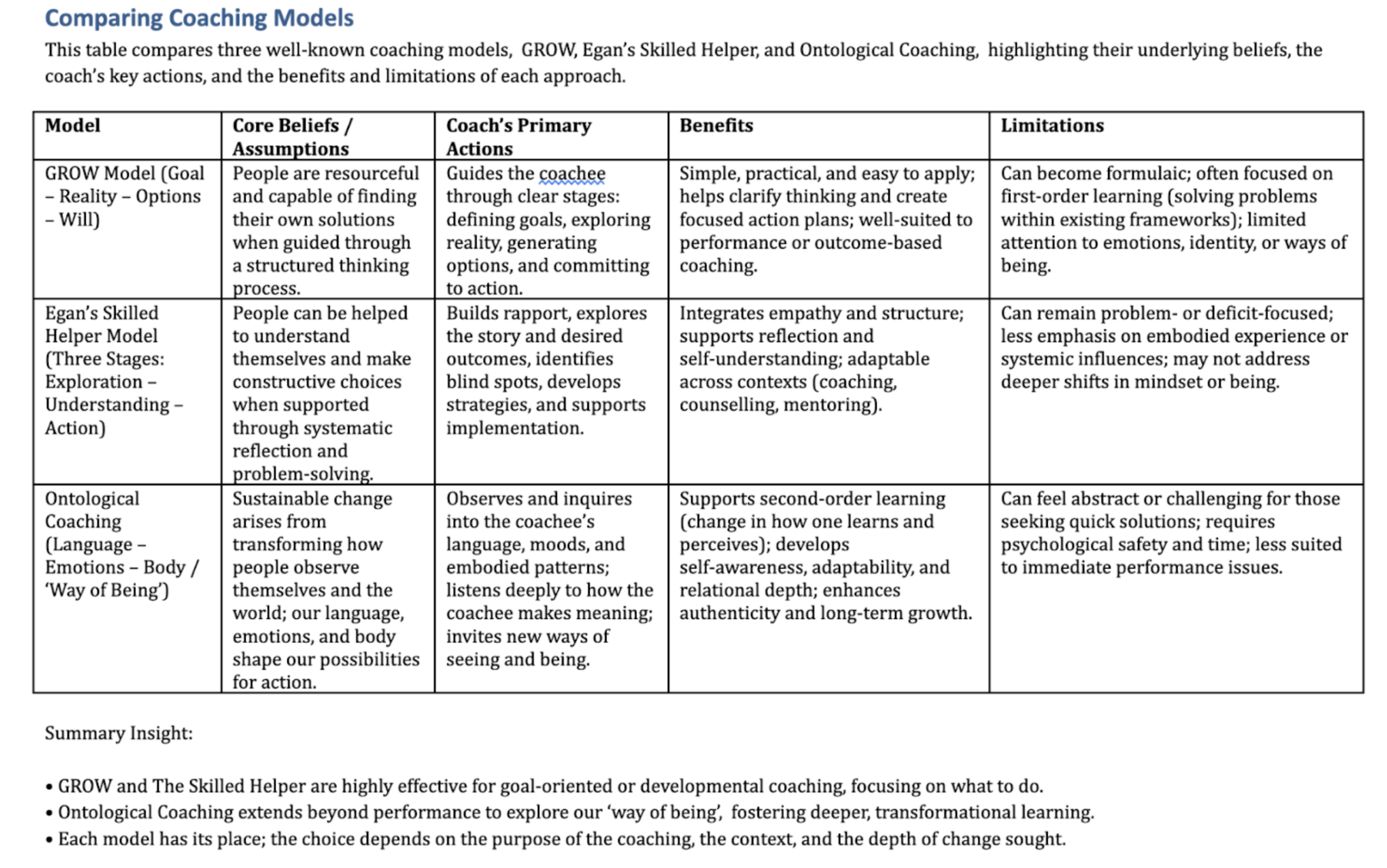Much of what is in popular discourse as coaching - in organisations, leadership programmes, or performance conversations - is grounded in models like GROW and its many variations. These frameworks are practical and valuable. They help people clarify goals, explore realities, identify options, and move towards action. Gerard Egan’s The Skilled Helper Model enabled us to take the work further, exploring our understanding of the current, our preferred future, goals and commitment, and carefully selecting actions most likely to bring about the changes we seek.
At their best, these approaches enable issue management and opportunity creation, supporting coachees to solve immediate problems or make progress on specific challenges.
But ontological coaching takes us somewhere different.
From First-Order to Second-Order Learning
Ontological coaching is not only about what we are doing, but how we are being as we do it. It focuses on second-order learning, learning that shifts the way we observe ourselves, others, and the world, rather than simply improving how we act within our current way of seeing things.
In this sense, ontological coaching isn’t about fixing or improving performance in the short term; it’s about expanding our capacity for awareness, choice, and coherence over time.
As Alan Sieler writes:
“Coaching is fundamentally about learning, and in the service of the coachee.”
The role of the coach, then, is not to steer the conversation towards a predetermined outcome, but to create a space for deeper inquiry, where the coachee can observe their patterns of thinking, feeling, and communicating - and discover new possibilities for action.
Listening as the Entry Point
Alan Sieler reminds us that our listening is “always, automatically, and already.”
We cannot not listen; but the way we listen reveals the world we inhabit, our assumptions, moods, and linguistic habits.
In ontological coaching, this idea transforms the coaching conversation. It invites us to listen not just for content, but for the way of being that gives rise to that content.
When we pay attention to how someone listens, speaks, and moves — linguistically, emotionally, and somatically, we begin to see where learning is possible. From there, our questions become less about what to do next and more about who we are being as we act.
Why This Matters for Leaders
For leaders, this shift is profound.
It moves coaching beyond performance management and into the realm of personal transformation.
It supports cultures where reflection, awareness, and relational intelligence become everyday practices.
And it reminds us that sustainable change starts not with strategies, but with how we observe, listen, and learn, ourselves first, and then others.


